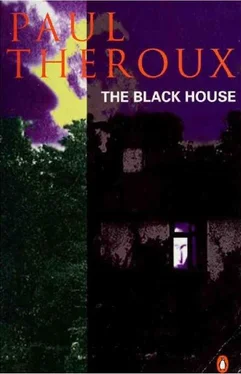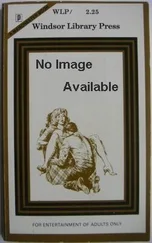Paul Theroux - The Black House
Здесь есть возможность читать онлайн «Paul Theroux - The Black House» весь текст электронной книги совершенно бесплатно (целиком полную версию без сокращений). В некоторых случаях можно слушать аудио, скачать через торрент в формате fb2 и присутствует краткое содержание. Год выпуска: 1996, Издательство: Penguin Books, Жанр: Современная проза, на английском языке. Описание произведения, (предисловие) а так же отзывы посетителей доступны на портале библиотеки ЛибКат.
- Название:The Black House
- Автор:
- Издательство:Penguin Books
- Жанр:
- Год:1996
- ISBN:нет данных
- Рейтинг книги:4 / 5. Голосов: 1
-
Избранное:Добавить в избранное
- Отзывы:
-
Ваша оценка:
- 80
- 1
- 2
- 3
- 4
- 5
The Black House: краткое содержание, описание и аннотация
Предлагаем к чтению аннотацию, описание, краткое содержание или предисловие (зависит от того, что написал сам автор книги «The Black House»). Если вы не нашли необходимую информацию о книге — напишите в комментариях, мы постараемся отыскать её.
The Black House — читать онлайн бесплатно полную книгу (весь текст) целиком
Ниже представлен текст книги, разбитый по страницам. Система сохранения места последней прочитанной страницы, позволяет с удобством читать онлайн бесплатно книгу «The Black House», без необходимости каждый раз заново искать на чём Вы остановились. Поставьте закладку, и сможете в любой момент перейти на страницу, на которой закончили чтение.
Интервал:
Закладка:
Munday did not contradict Emma. He was glad to be relieved of the burden of conversation and he was pleased Caroline was responding with such kindness. He said, “Tell Caroline about the mysterious Mrs. Seaton.” They ate in the kitchen, because Emma’s hours of cooking had made it the warmest room. But they might have been anywhere in the house: there was a rightness in their gathering there, and Munday passed beyond his superficial guilt to the feeling he had experienced on New Year’s, when he had made love to Caroline before the gasping fire, while Emma slept on upstairs. He saw that the three of them belonged to the Black House, they were its first tenants, and all those rooms, the low ceilings, the protecting shadows, the unusable and makeshift modernity, the sweating windows in the thick walls made an appropriate shelter for a love that had to be conspiratorial. What else could it be? Love was exclusive, a lucky couple making a meal amid famine. It had to be hidden, dragged into the dark; and the Black House, the object of his return, which was for him the whole of England, as the Bwamba village had been the whole of Africa, was the perfect place for this feast. Dining together, it was as if they had now acknowledged what he had always suspected, the November impression he had called a fear, that it was a house so veiled you imagined a victim in one of its darkened rooms. He had thought it was himself; for a while—but without knowing her name—he believed it was Caroline; now he knew it was Emma.
Emma said, “You don’t expect the countryside to be so oppressive.” She wrinkled her nose. “Alfred says it’s my own fault—he’s a great one for holding people responsible. He blamed that poor Mrs. Branch for the noisy tractors that go by the window with the bales of hay. And he’s so wrapped up in his work. It was the same in Africa.”
“Africa,” said Caroline. “Everyone has an uncle who’s been there. Or am I thinking of India?”
“I wouldn’t know,” said Emma. “My uncle never set foot out of Roehampton.”
“But what made you go to Africa in the first place?” Caroline asked.
“I went with Alfred.”
Caroline turned to Munday and said, “Well?”
“For my research,” said Munday. “But I never wondered why. At the time I would have been more surprised by someone who said he didn’t want to go. The name was always magic to me. Africa, Africa— and the Mountains of the Moon. I thought of lions and craters and people whom no one had set eyes on before. It’s infantile, I suppose, but there it is. If a chap told me he wanted to go to Istanbul or Java, I wouldn’t ask why.”
“I’ve been to Istanbul,” said Caroline. “On that vastly overrated train. I’d never do it again.”
“It’s a bewitching name,” said Munday.
“That’s why my first husband went to Dubrovnik,” said Caroline. “He hated it, and a Jug picked his pocket.”
“I found Africa disappointing,” said Emma. “Such sad people.”
“The Africans,” said Caroline.
“Well, I was thinking of the expatriates,” said Emma. “But the Africans as well. There was nothing one could do.”
“You had your painting,” said Munday.
“Humped Cattle, Tea Harvesting,” said Emma. “I’ve tried that here. It doesn’t work. I’m afraid I’ve become a television bug. Alfred hates it. I watch the news and those awful discussions. The Irish business, the miners. It’s like one of those third-rate serials with a complicated plot, in endless installments. You have to keep up with it, all the new developments and characters.” She reached for a dish. “Will you have some more meat? And there’s lots more Yorkshire pudding.”
“I’m doing fine with this,” said Caroline. “It’s delicious.”
“I’m not much of a cook,” said Emma. “I never got any practice in Africa. We always had help, fetching and carrying, cooking, anything you can name.”
“It sounds idyllic.”
“It was beastly,” said Emma. “Have you read Eliot? The Cocktail Party? ‘When these people have done with a European, he is, as a rule, no longer fit to eat.’ ”
“Tripe,” said Munday.
“But you must have loved it to have stayed so long there,” said Caroline to Munday.
“It began to wear a bit thin,” said Munday. “I sometimes feel I could have discovered all I needed to know about isolation and perhaps even tribalism right here in Four Ashes.”
“Not witchcraft surely?”
“And witchcraft,” said Munday, “of a sort. Anyway, that love of Africa or the exotic anywhere is like sexual voyeurism. You go on watching and you think you’re perfectly detached. But you’re involved in a rather pathetic way. It changes you. You’re violated by just seeing it.”
“So you stopped being a voyeur,” said Caroline.
“I never started.”
Emma coughed. She passed the salad to Caroline and said, “There are avocados in it. I hope they’re ripe.”
“Who is Mrs. Branch?” asked Caroline.
“She used to do for us,” said Emma. “Alfred was forever scaring her half to death with African stories.”
“My idea of an African story,” said Munday, “is talking about one’s servants.” But Emma ignored him: “Once, Mrs. Branch said, ‘They must be so savage,’ and Alfred said, ‘Well, they wash their hands before they eat—that’s pretty civilized.’ He’s full of remarks like that. You were at his talk, so you know.”
“You notice she took the hint,” said Munday.
“I must remember that,” said Caroline.
“Alfred uses Africans to reproach the English,” said Emma. She smiled. “Incredible isn’t it? But that’s anthropology.”
“I always think of anthropologists as having these jungle helmets and shorts, and becoming honorary chiefs of obscure tribes, and hiking for days with little native guides,” said Caroline. She had affected a stagey manner; she was acting. How strange it was to see her behaving like this, Munday thought; to see them both, Emma and Caroline, playing parts in company, assigning him his trivial part, because the role of lover was unplayable. “Oh, yes,” Caroline said, “and being terribly interested in arrowheads and blunt daggers.”
“You’ve just described my husband,” said Emma. “Not exactly,” said Munday.
Emma leaned towards Caroline, and said, “You should see Alfred’s weapons.”
“I’ll open that second bottle of wine,” said Munday. He went to the sideboard and pulled the cork, and filling the glasses he said, “I think you're going to like this one. It’s rather better than that Spanish number.” Caroline smiled and said, “This has been a lovely evening.”
“I’m enjoying myself,” said Emma. “We see so few people. We don’t do much in the way of entertaining. It’s a treat for us having you over.”
“Yes,” said Munday. “But you must have lots of friends in the area.”
“Not really,” said Caroline. “Like you, I'm a stranger here—though I’ve lived here for quite a number of years. The local people aren’t very easy to know. And the others are too easy, if you know what I mean. I live a quiet life.”
“So do we,” said Emma. “But not by choice. There are so many plays on in London I’d like to see.”
“That’s an expatriate remark if I’ve ever heard one,” said Munday.
“It’s true,” said Emma.
“My husband and I used to go up to London for the plays,” said Caroline.
“And you don't go now?” said Munday.
“Well, I lost him you see.”
“I’m sorry,” said Emma.
“It takes some getting used to.”
“You're managing, though,” said Munday.
“Just,” said Caroline. “I had to give up my dogs.”
“Dogs?” Munday reached for his glass of wine, but he saw his hand was trembling, and he didn’t pick it up. He moved the glass in circles on the table. He said, “What did you do with them?”
Читать дальшеИнтервал:
Закладка:
Похожие книги на «The Black House»
Представляем Вашему вниманию похожие книги на «The Black House» списком для выбора. Мы отобрали схожую по названию и смыслу литературу в надежде предоставить читателям больше вариантов отыскать новые, интересные, ещё непрочитанные произведения.
Обсуждение, отзывы о книге «The Black House» и просто собственные мнения читателей. Оставьте ваши комментарии, напишите, что Вы думаете о произведении, его смысле или главных героях. Укажите что конкретно понравилось, а что нет, и почему Вы так считаете.












